#Buryat model
Explore tagged Tumblr posts
Text
aryana kiplyuks

1 note
·
View note
Text
the pathologic Kin is largely fictionalized with a created language that takes from multiple sources to be its own, a cosmogony & spirituality that does not correlate to the faiths (mostly Tengrist & Buddhist) practiced by the peoples it takes inspirations from, has customs, mores and roles invented for the purposes of the game, and even just a style of dress that does not resemble any of these peoples', but it is fascinating looking into specifically to me the sigils and see where they come from... watch this:
P2 Layers glyphs take from the mongolian script:

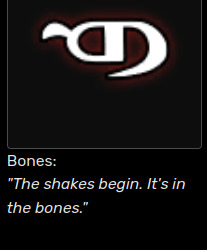

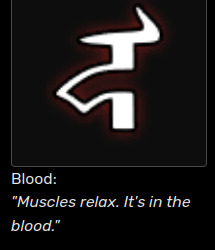

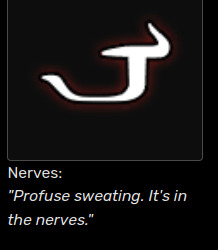

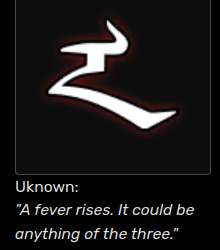
while the in-game words for Blood, Bones and Nerves are mongolian directly, it is interesting to note that their glyphs do not have a phonetic affiliation to the words (ex. the "Yas" layer of Bones having for glyph the equivalent of the letter F, the "Medrel" layer of Nerves having a glyph the equivalent of the letter È,...)
the leatherworks on the Kayura models', with their uses of angles and extending lines, remind me of the Phags Pa Script (used for Tibetan, Mongolian, Chineses, Uyghur language, and others)
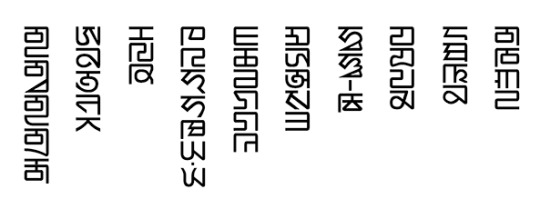

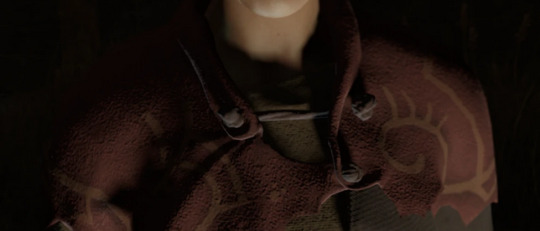
some of the sigils also look either in part or fully inspired by Phags Pa script letters...



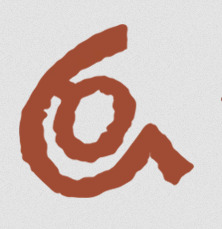


some look closer to the mongolian or vagindra (buryat) script

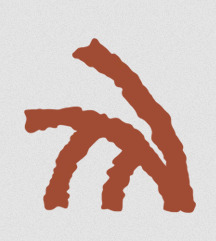
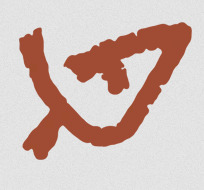

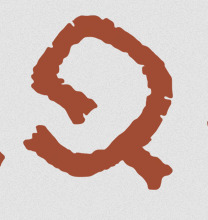
looking at the Herb Brides & their concept art, we can see bodypainting that looks like vertical buryat or mongolian script (oh hi (crossed out: Mark) Phags Pa script):
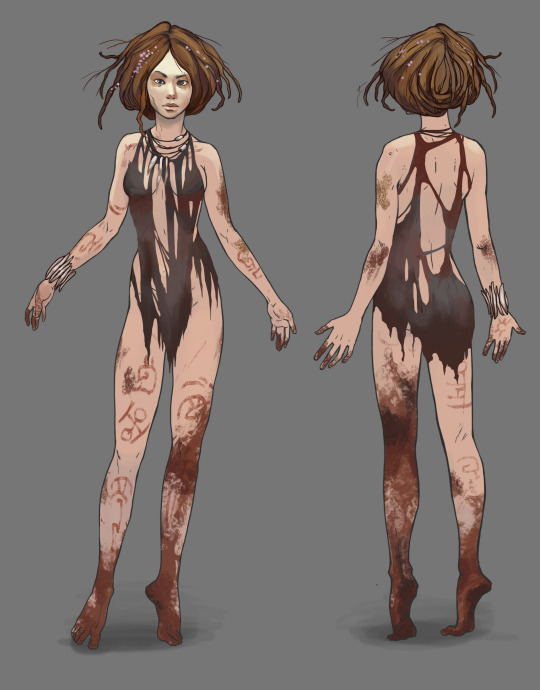
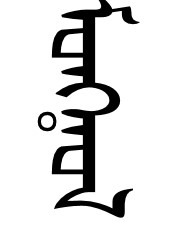
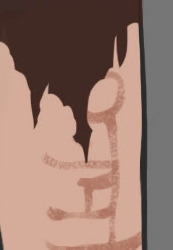
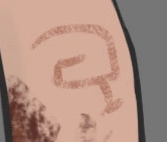

shaped and reshaped...
#not sure how much. what's the word. bond? involvement? not experience. closeness? anyone in the team has with any of these cultures#but i recall learning lead writer is indigenous in some way & heavily self-inserts as artemy [like. That's His Face used for#the p1 burakh portrait] so i imagine There Is some knowledge; if not first-hand at least in some other way#& i'm not in the team so i don't know how much Whatever is put into Anything#[ + i've ranted about the treatment of the brides Enough. enough i have]#so i don't have any ground to stand on wrt how i would feel about how these cultures are handled to make the Kin somewhat-hodgepodge.#there is recognizing it is Obviously inspired by real-life cultures [with the words;the alphabet;i look at Kayura i know what i see]#& recognizing it Also is. obviously and greatly imagined. not that weird for you know. a story.#like there is No Turkic/Altaic/Mongolic culture that has a caste of all-women spiritual dancers who place a great importance on nudity#as a reflection of the perfect world and do nothing but dance to bring about the harvest. ykwim...#like neither the Mongols nor the Buryats nor the Tibetans dress the way the Kin does. that's cos the Kin is invented. but they're invented.#.. on wide fundations. ykwim......#Tengrism has a Sky Deity (Tengri) with an earth-goddess *daughter* whereas the kin worship an Earth-Goddess mother of everything#+ a huge bull. Buddhism has its own complete cosmogony & beliefs which from the little I know Vastly Differ from anything the Kin believes#like. yeah. story. but also. [holds myself back from renting about the Brides again] shhh...#neigh (blabbers)#pathologic#pathologic 2
305 notes
·
View notes
Text
Sakha
In this post, where I use "Sakha" and "Yakutia", they are interchangeable
If you just want headcanons, it's right at the bottom of this post
Name: Erchim Basygasov
The reason why I gave him this name:
Erchim, in the Sakha language means vigorous/active/energetic. I think it suits him well as I see him as being quite outgoing/a busy body.
Basygasov: I know it seems like I gave him a Russian last name but there is a reason behind this. Many common Sakha surnames are either Russian in origin or are modelled after Russian names. I chose to go with the "Sakha name that was modelled to sound like a Russian name" route. The nickname "Bahygas" comes from the adjective meaning "able to draw" in Sakha, and so this Sakha nickname is then modified to sound like "Basygasov" as a surname. I chose this surname because I see him as actually being quite artsy!
Origins
His exact birthdate is extremely uncertain as its said that the Sakha people may have settled in the area around the 9th-16th centuries
I'll say that he emerged from 1300-1400 as a distinct group to try and find a balance between those dates.
The ancestor of the Sakha before they migrated Northwards are said to be the Kurykans, who moved from Yenisey River to Lake Baikal in the 7th century, and likely had some level of mixing with Mongolic peoples.
Specifically Sakha's origins were most likely during the great migrations in the 13th century (obviously he existed a little bit before these migrations occurred)
Some of the native inhabitants of the Lena (Evenki, Eveni, Yukagir) assimilated with the migrants (him) from the Lake Baikal region/Southern Siberia who were pressured to move because of the Buryats/pressure from the expanding Mongol Empire (according to Sakha's own legends)
The migrants from Southern Siberia, brought language, oral history, and livestock herding. In fact it is these things which is what suggests that Sakha's origins are due to this migration from the south to the north, especially the horse and cattle breeding which was a Southern economy. Unlike Sakha's reindeer herders neighbours, the Sakha farmed horses and cattle, assimilating Eveni and Evenki (Tungusic) cultures in the process, and we can see this especially through Sakha's shamanic traditions.
It was this mixture of cultures that brought about the Sakha people. I actually think Sakha first represented these migrant groups from Lake Baikal as a child and formed his stronger identity as he migrated and assimilated other groups.
This is because the Sakha people greatly tie their origins to these migrations, and as mentioned before, according to their own legends, they were "driven out" by the Buryats/expansion of the Mongol Empire to move Northwards, centring the origins of their history to these migrants and the migration.
These migrants are speculated to be of Turkic/Turko-Mongol origin. Possibly even Khakas to an extent
Mfw Sakha sounds like Khakas 🤒
But in all seriousness, the origin of the ethnonym Sakha was seen as linked to the Sagay Khakas of Abakan River however this cannot be seen as certain
So Sakha settled in areas with grazing along the Lena, Vilyuy, and Aldan rivers. Again this differed from the smaller, original populations like Even, Evenk, and Yukagir (reindeer herders), who either assimilated or relocated to uplands due to their hunting and reindeer herding economies.
So... Sakha 🤝 Chukotka when it comes to assimilating people
Sakha oral epics mention leaders like Tygyn, the most powerful among them, who formed a chiefdom in the 17th century by subjugating other clans.
So in the late 16th to early 17th centuries, Kangalastsy tribe, led by Tygyn was the most powerful and respected.
They lived in the central steppe area of the Middle Lena valleys, enabling them to excel in cattle farming and gain economic and military advantages.
The Kangalastsy were significant in shaping the Sakha culture, and it's somewhat speculated that they are linked to an ancient tribal union called kangly, which opposed the Hunnic State in the Syr Darya region centuries before (cannot be certain).
According to Sakha folklore, Tygyn was a descendant of Badzhei.
He was the son of Munn'an Darkhan and the grandson of Tyusyulge Darkhaan. Tygyn was notably tall and became the Chief King after his father.
And again, he united various Sakha clans.
So he was kind of like... The Sakha version of Genghis Khan?
However, in 1628, Tygyn's forces were defeated by the advancing Russians, armed with firearms. He was captured and imprisoned, where he suffered from a skin condition and passed away in 1632.
In that same hear, the Yakutsk fort was built, forming Yakutia's link to Russia.
However this was not at all peaceful. The Sakha rebelled seven times (1633-1684) and was met met with harsh suppression.
But before this, Tygyn did manage to be a pain in the arse for the Russian Cossacks - it is mentioned that in 1631 they could not collected fur tax from him
Further: In Legends, Russian Cossacks met Tygyn and praised the power of the Moscow Tsar. They asked Tygyn and the Sakha people to submit, promising mercy, wealth, and rewards. However, Tygyn declined, challenging the Cossacks to a fight instead.
In 1634, Cossack chief Ivan Galkin noted that Kangalas princes (Tygyn's sons/descendants?) controlled vast land and people, even other princes.
They avoided paying taxes for a while. But by 1637, Tygyn's sons submitted, paid taxes, gave hostages, and showed loyalty. Many Sakha people followed, making the Sakha territory part of Russia.
The fact that a majority of the other Sakha people submitted along with Tygyn's sons goes to show how influential Tygyn's lineage was/links to what I said previously about how influential they were in shaping Sakha culture
In the next year, 1638, the Yakutsk district was created, becoming Yakutsk province in 1775, and later Yakutsk region in 1784
So....Sakha was essentially on a pretty strong grind before Russia came along. Tygyn put up a good resistance but his sons on the other hand... 🤒 He malds about it but he also knows it was kind of inevitable
Still kind of glorifies Tygyn to this day
Before Russian colonisation, Sakha was pretty enthusiastic/strong willed. His strong willed nature still followed him however the enthusiasm waned a little under Russian colonisation. A large part of his early enthusiasm can be chalked up to his new found wealth and strong leader, so it was a pretty drastic change of mood once it was abruptly ended by the colonisation period. He didn't take it too well because it was, well, unexpected. He (rightfully) held on to a lot of anger/resentment for a while.
I've mentioned other people who he had contact/relations with such as the Even, Evenk and the Yukagir. Major parts of Sakha culture were derived from these peoples. I see those three as almost being his mentors in a way because of this. On one hand, they were annoyed at this kid who suddenly moved there out of seemingly nowhere which is now forcing them to move more North >:( but on the other hand it was also "Well... He's here so we might as well try and teach him some things if he wants to survive 🙄". I see Evenkia as being his main kind of mentor as Evenki culture influenced Sakha culture more majorly.
On average, Sakha has a good relationship with all of them (especially when they ask him for advice on legal troubles.)
To be fair though, Yukagir is probably the most annoyed by Sakha (when she does feel in the mood to be annoyed at someone) because mass-assimilation affected her the most.
Life under Russian colonisation
In the 17th century, Sakha people fought fiercely against Russian control until 1642. Then, Russian missionaries tried to convert the Sakha to Christianity between 1651 and 1700.
During the 18th century, the Sakha had to move due to political and environmental reasons. Russians took advantage, taking control of Sakha areas.
By 1773, the Imperial mail system reached the Sakha regions. Political opponents of the Tsarist regime were put in prison camps. In the 19th century, Yakuts switched to sedentary farming and Orthodox Christianity.
In 1846, gold discovery led to Russian immigration, changing the demographic of the population.
In the early 20th century, Yakuts were involved in the Russian Civil War, supporting both Red and White armies. In the aftermath of World War I, the Russian Revolution, and the Civil War, the Soviet government established the Yakut Autonomous Soviet Socialist Republic in 1922.
While Sakha was somewhat... Appreciative of this move, it still wasn't enough. By appreciative I don't mean he kissed Russia's ass on got on his knees thanking him, absolutely not. More like, he saw it as a push in the right direction in general.
Sakha is always one to push things to get his way, and though some things from the Russians were inevitably accepted such as orthodox Christianity and sedentary farming - this is not a testament to Sakha keeling over easily. As I will talk about in my next bullet points, Sakha played a prominent role in not only protecting his own interests, but other Siberian interests too.
This is why earlier I talked about the likes of Even, Evenk and Yukagir asking him for help with certain legal troubles. I think Sakha has always been quite outgoing and you can see this even before Russian colonisation. So this skill of his stuck through, which is why he's such a prominent player in these types of affairs but also very keen on getting himself out there, as seen later under my "Business brained?!" subheading of this post.
Collectivisation and sovereignty
From 1925 to 1960, Sakha agriculture was collectivised, leading to resistance and subsequent repression.
Sakha organisations, schools, and publications were banned, and Stalin's industrialisation policies led to significant Russian immigration into Sakha .
Throughout this period, Yakuts fiercely clung to their language, which became a symbol of resistance under Soviet rule. It was one of the only ways in which they could resist
In the late 20th century, amid Gorbachev's reform policies, Sakha nationalism resurfaced.
In March 1990, an Association of Peoples of the North was formed, with Sakha playing a prominent role.
This association aimed to protect the interests of 26 ethnic groups, including the Sakha, and increase their bargaining power in economic and political negotiations with Moscow.
In August 1990, Yakutia increased its autonomy within Russia by issuing a declaration of sovereignty
Sakha proclaimed its sovereignty within the Russian Federation in September 1990, adopting the formal name Yakut-Sakha Soviet Socialist Republic, aligning with the traditional name of the Sakha people.
In August 1991, Sakha's parliament passed a law, transferring control of all state enterprises from the USSR central government to the republican authority.
By December of the same year, Mikhail Nikolayev secures a resounding victory, becoming Sakha's first president with over 70 percent of the vote
Further push for greater Sovereignty
In January 1992, Sakha parliament aimed for more independence, proposing a treaty with Moscow. The treaty would give Sakha control over precious metal reserves for global sales. But this sparked criticism from local Russian legislators, calling it secessionist.
In May 1992, a new constitution established Yakut-Sakha, declaring local natural resources as owned by the people.
During this time, the Sakha parliament accused the Russian Central Bank of withholding funds, causing economic issues. This led to worker payment problems and threats of strikes, risking disruptions in diamond, gold, coal, and other exports.
...Sakha is definitely not afraid to speak his mind and outright call Russia out on his bad behaviour, but this goes for anyone who behaves badly in general too. He cares little for sparing peoples feelings when his interests are being obstructed - especially if it's Russia doing so. This doesn't mean that he's not open to working with Russia, just that he places importance on emphasising his own interests. If it doesn't benefit him somehow in some way, he doesn't want to deal with it.
This attitude is reflected in a point I make later on in this post, which talks about an incident that took place in December 1997 in which the Sakha Republic refused an agreement with the Russian defense ministry.
Business brained?!
This may seem like a random subheading but I have talked about the contents of this previously so hear me out.
In June 1992 Sakha's President Nikolayev visited Latvia for economic ties.
Then, in August of the same year, Presidents of Sakha, Tatarstan, and Bashkortostan warn Moscow about regional sovereignty plans.
In February the following year, Sakha and Irkutsk Oblast sign an economic cooperation agreement.
In May 1993, Sakha and Mongolia agree on cooperation in science, culture, and trade.
The next month, Sakha and Kazakhstan sign a five-year economic cooperation pact.
In January the following year (1994) Sakha and Ukraine agree on a five-year economic cooperation deal.
Sakha was very eager to #grind and get himself out there after being declared the Republic of Sakha in late December 1991. As I said before, Sakha has always been quite goals driven even before Russian colonisation, so it's not really a surprise that he did this.
I see him as being a big organiser of events between the Siberian peoples and is always one to lend an ear out/a helping hand out if someone is in need of some assistance.
Examples of him not taking shit but also being business brained™:
In March 1997, Sakha opposed a military rocket launch from Svobondy Space Center due to safety concerns. The government doubted the environmental impact and technical safety of the rocket. Despite objections, the Ministry launched the rocket, and its second stage fell near a Sakha village.
This incident led to a lawsuit against the Military Space Force, causing Sakha to cancel its 1996 agreement.
In October 1997, Yakutia's Parliament members expressed concern to national deputies about insufficient support for the Far North residents in the upcoming winter. They stated that 80% of Sakha's resources come from outside the republic, but government support for these deliveries had drastically reduced to 20%.
The deputies argued that the proposed 1998 federal budget lacked a separate allocation for delivering products to the Far North, leaving the state neglecting its responsibility to support this region.
In December 1997, Sakha's government refused an agreement with the Russian Defence Ministry for using its territory as a rocket dumping ground due to lack of examination and compensation. The agreement was later signed after agreeing to share revenue from commercial launches.
In July 1998, Sakha passed a law allowing various entities, including foreign citizens and legal entities, to use mineral deposits if registered in the republic and authorised by Russian and Sakha laws.
What's important is that the law also banned using these resources for nuclear weapons, mass destruction weapons, and radioactive substance burial.
Sakha isn't necessarily 100% against working with/co-operating with Russia of course as it does have it's benefits and it's not his goal in life to just purposefully antagonise. However his more outspoken nature and willingness to bluntly point things out has given him a bit of a reputation - despite him actually being quite co-operative/amicable for the most part. He's willing to co-operate, but not to bend over and shut himself up if he disagrees with something.
Quick sidenote on the Dolgan: I see Sakha as being quite close with Dolgan. Dolgan culture incorporates aspects from different groups, including reindeer herding from the Evenki, herd dogs from the Nentsy, and women's fur coats from the Sakha.
In fact, the Dolgan people originated from a few Evenk clans that later adopted a dialect of the Turkic-speaking Sakha (Yakut).
So Sakha does try to look out for Dolgan and imagining him like. Dressing her up/giving her clothes and jewellery is so cutee. He's a lot more involved with her than Evenkia is, much to his annoyance.
Headcanons summarised and some more headcanons:
He is actually quite interested in art! There's the National Art Museum in Sakha which I think he likes to go to to unwind
It's also the largest Art Museum in North East Siberia
Is quite good at drawing himself and is quite crafty. Doodles often when he's bored during a meeting
Big organiser of get togethers/events
Quite outgoing/approachable
Smoker 🤒
Saul Goodman of Siberia I guess
Proud father™ to Dolgan😍
Considers Evenk, Even and Yukagir his mentors however acknowledges that Evenk was the major one, even if he slightly annoys him these days
Sakha produces 1/4 of the world's diamonds yet little of that wealth has tricked down to him. Which is something he malds about
Unfortunately diamond mining has disproportionately affected Sakha's neighbours. That being, the Even, Evenk, Yukagir and Chukchi.
He does feel guilty about this, especially considering how 3/4 of them were his former mentors. This is a point of tension in their relationship
Lowkey intimidated by Chukchi/Chukotka..
His life isn't consumed with hating Russia 24/7 however he'll never truly care for Russia or like/love him. He tolerates him most days and that is probably the most positive feeling he'll be able to feel for Russia (this can be said for a lot of the other Siberians to be honest)
Sure, he likes when Russia is co-operative and he benefits from it but that's not him liking Russia himself
Funny relationship with Buryatia/Mongolia like wow a huge part of my identity was formed because of you guys pushing me out.
Some... Not so healthy coping mechanisms but he's gucci for the most part
Debate club vibes
Russia can be quite chauvinistic at times and tries to paint himself as some sort of mentor to Sakha. As you can guess Sakha despises when he does this and reminds him who he actually considers his mentors
"I'd let Evenkia leave me with another baby again before -"
Lowkey tries to be sort of a big brother to other Siberians despite being younger than quite a few of them
This sort of irks the older Siberians at times
Was baptised at some point in the 18th century and was given a Russian name that he went by for a period of time (only in front of Russia tbh). Has since dropped the Russian name completely.
Gets extremely agitated when Russia calls him his former Russian name
Workaholic 👎 but is always willing to lend a hand with helping someone if they really need him
Good legal advice 👍
Has his own little art projects that he barely has time to finish. A lot of which is just making cute jewellery for Dolgan -
Diplomacypilled™ unfortunately
#Aph Sakha#Hws Sakha#Hetalia Sakha#Aph even#Hws even#Aph evenia#Hws evenia#Hetalia even#Hetalia evenia#Aph Evenk#Hws Evenk#Hetalia Evenk#Hws evenkia#Hetalia Evenkia#Hws Dolgan#Hetalia Dolgan#Aph Russia#Hws Russia#Hetalia Russia#Aph Yukagir#Hws Yukagir#Hetalia Yukagir#hetalia world series#Hetalia world stars#Hetalia oc#Hetalia Siberia#Hws Buryatia#Aph Buryatia#Hws Yakutia#Aph Yakutia
24 notes
·
View notes
Note
"shuro would be from a historical Japantown district in california so I guess izutsumi is also from cali"
It's important to keep in mind that Izutsumi is originally from a different part of the Eastern Archipeligo as the rest of Shuro's group (who are from the "Island of Wa", which is an old name for Japan), so I feel like she should be from somewhere else but was moved to California. Though actually now that I'm thinking about it, in a real world AU, Izutsumi would have probably gone through the foster system, and I don't think the US foster system is allowed to move kids across state line because they are considered "wards of the state", so she would probably still have to be from California, but from a significantly different part of the state than Shuro et al.
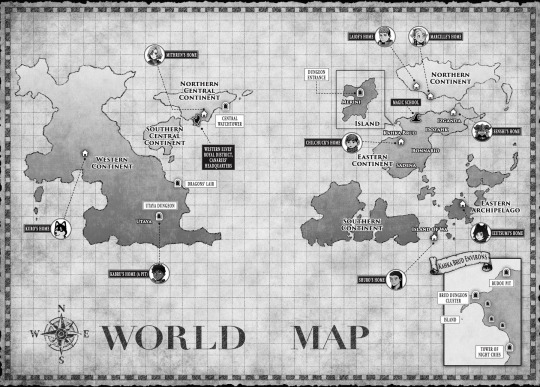
Her wiki page also says "Her mother appears wearing a deel, implying that her family may be from a region modeled after Central Asia."
Quick search says "A deel (Mongolian: ᠳᠡᠪᠡᠯ /дээл [deːɮ]; Buryat: дэгэл [dɛɡɛɮ]) is an item of traditional clothing commonly worn by Mongols and Turkic and Tungusic peoples for centuries"

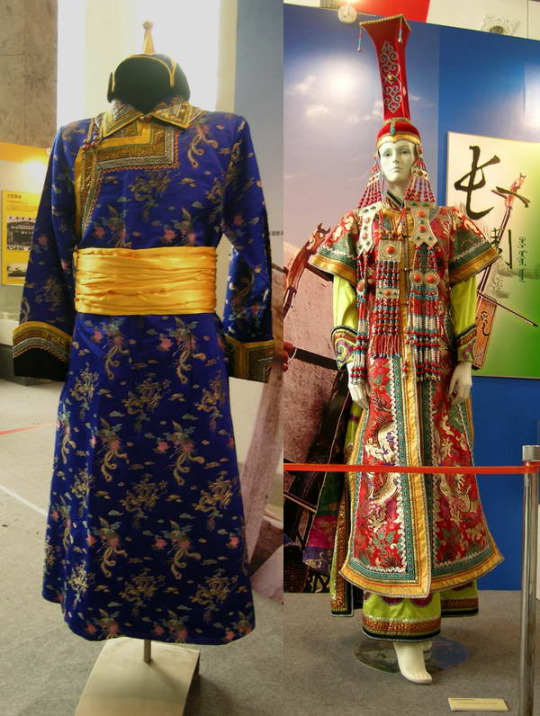
oh I had totally forgotten that detail about izutsumi's past! also I like your idea that modern au izutsumi would be a foster kid rather than having been trafficked. wikipedia is telling me that the largest communities of Mongolian-Americans is also in california. so I think it makes sense for shuro's family to be wealthy and well-established Japanese-Americans and izutsumi's family are displaced immigrants who run into some kind of trouble that gets her into the foster system
5 notes
·
View notes
Text
Google Translate Expands Language Fluency with 110 New Additions, from Abkhaz to Zulu

Google Translate is expanding its language capabilities significantly, adding 110 new languages, including Manx, in its largest single expansion ever. This brings the total number of languages supported by the translation tool to 243, nearly doubling its previous count. The expansion is driven by PaLM 2, the latest iteration of Google's Pathways Language Model introduced in 2022 and enhanced with version 2 in May 2023. Google Translate has steadily broadened its language repertoire over the years. In 2008, for instance, it added Czech, a crucial addition for many, including this writer, who moved to a Czech-speaking region a decade ago. Recently, the focus has also extended to languages like Manx, spoken on the Isle of Man. This expansion, similar to a more modest increase of 24 languages in 2022, utilizes Google's Zero Shot machine translation method. Since 2016, Google Translate has employed neural network models for translation, with zero-resource training enabling the models to translate languages without exact one-to-one matching texts in the training database. This development highlights a practical application of large language models (LLMs), which some present as AI. LLMs operate on neural networks, and contrary to marketing claims about "AI accelerator chips," these are primarily specialized co-processors for faster tensor mathematics computations. Machine translation plays a crucial role in preserving and revitalizing minority languages. A notable example is Manx, which has seen a revival over the past few decades. The last native speaker, Edward "Ned" Maddrell, passed away in 1974. However, efforts to document the language through recordings and videos have preserved it. Today, there is a new generation of native Manx speakers, with children being raised by adults who learned the language as a second language. Additionally, the establishment of Bunscoill Ghaelgagh, a Manx language primary school, has further contributed to the language's resurgence. Google's recent addition of 110 languages, including Manx, marks its largest expansion ever of Google Translate. This brings the total number of languages supported by the translation tool to 243, nearly doubling its previous count. The expansion is powered by PaLM 2, the latest release of Google's Pathways Language Model introduced in 2022 and improved with version 2 in May 2023. Google Translate has been gradually expanding its language capabilities for years, a journey that began with the addition of languages like Czech back in 2008, catering to diverse linguistic needs worldwide. The comprehensive list of languages now supported by Google Translate includes Abkhaz, Acehnese, Acholi, Afar, Afrikaans, Albanian, Alur, Amharic, Arabic, Armenian, Assamese, Avar, Awadhi, Aymara, Azerbaijani, Balinese, Baluchi, Bambara, Baoulé, Bashkir, Basque, Batak Karo, Batak Simalungun, Batak Toba, Belarusian, Bemba, Bengali, Betawi, Bhojpuri, Bikol, Bosnian, Breton, Bulgarian, Buryat, Cantonese, Catalan, Cebuano, Chamorro, Chechen, Chichewa, Chinese (Simplified), Chinese (Traditional), Chuukese, Chuvash, Corsican, Crimean Tatar, Croatian, Czech, Danish, Dari, Dhivehi, Dinka, Dogri, Dombe, Dutch, Dyula, Dzongkha, English, Esperanto, Estonian, Ewe, Faroese, Fijian, Filipino, Finnish, Fon, French, Frisian, Friulian, Fulani, Ga, Galician, Georgian, German, Greek, Guarani, Gujarati, Haitian Creole, Hakha Chin, Hausa, Hawaiian, Hebrew, Hiligaynon, Hindi, Hmong, Hungarian, Hunsrik, Iban, Icelandic, Igbo, Ilocano, Indonesian, Irish, Italian, Jamaican Patois, Japanese, Javanese, Jingpo, Kalaallisut, Kannada, Kanuri, Kapampangan, Kazakh, Khasi, Khmer, Kiga, Kikongo, Kinyarwanda, Kituba, Kokborok, Komi, Konkani, Korean, Krio, Kurdish (Kurmanji), Kurdish (Sorani), Kyrgyz, Lao, Latgalian, Latin, Latvian, Ligurian, Limburgish, Lingala, Lithuanian, Lombard, Luganda, Luo, Luxembourgish, Macedonian, Madurese, Maithili, Makassar, Malagasy, Malay, Malay (Jawi), Malayalam, Maltese, Mam, Manx, Maori, Marathi, Marshallese, Marwadi, Mauritian Creole, Meadow Mari, Meiteilon (Manipuri), Minang, Mizo, Mongolian, Myanmar (Burmese), Nahuatl (Eastern Huasteca), Ndau, Ndebele (South), Nepalbhasa (Newari), Nepali, NKo, Norwegian, Nuer, Occitan, Odia (Oriya), Oromo, Ossetian, Pangasinan, Papiamento, Pashto, Persian, Polish, Portuguese (Brazil), Portuguese (Portugal), Punjabi (Gurmukhi), Punjabi (Shahmukhi), Quechua, Q'eqchi', Romani, Romanian, Rundi, Russian, Sami (North), Samoan, Sango, Sanskrit, Santali, Scots Gaelic, Sepedi, Serbian, Sesotho, Seychellois Creole, Shan, Shona, Sicilian, Silesian, Sindhi, Sinhala, Slovak, Slovenian, Somali, Spanish, Sundanese, Susu, Swahili, Swati, Swedish, Tahitian, Tajik, Tamazight, Tamazight (Tifinagh), Tamil, Tatar, Telugu, Tetum, Thai, Tibetan, Tigrinya, Tiv, Tok Pisin, Tongan, Tsonga, Tswana, Tulu, Tumbuka, Turkish, Turkmen, Tuvan, Twi, Udmurt, Ukrainian, Urdu, Uyghur, Uzbek, Venda, Venetian, Vietnamese, Waray, Welsh, Wolof, Xhosa, Yakut, Yiddish, Yoruba, Yucatec Maya, Zapotec, and Zulu. Read the full article
0 notes
Text
What a jumbled bunch of unfounded allegations and simply misinformed takes.
The allegations against Dybowski went nowhere because they are hardly more than a couple anonymous twitter users telling tales. The age of consent in Russia is 16, but had a professor routinely abused 15 year olds, the pedo hysteria here was no weaker than anywhere, and the courts hand out years-long sentences for being near minors. But then again, Russians enroll in a university at 17 years of age - where would a university prof even get access to 15 year old schoolgirls? No legal action was pursued, and instead we have to take a US propaganda rag's word for it. Solid evidence right there. And no, crying and throwing a fit in the replies aren't making it any better.
"The Russian army attacking the Ukraine to occupy former USSR territory and Syria" - what a load. "Occupying Syria" by aiding the legally elected secular government fighting against Western-supported salafists, as the US illegally stations its troops in the oil-rich East of the country, phah. "Occupying former USSR territory" by demanding basic language rights for the Russians, a stop to NATO encroachment, and denazification. And, of course, IPL's at the head of it all, Dybowski personally leading the assault first on the ISIS, then on Azov brigade and the rest of the swastika-wearing siegheil-shouting Bandera worshippers whom the Western propaganda oh so easily turns a blind eye to.
Then, really, "the fixation with portraying the Kin as woman-sacrificing brutes"? Have you even played the game? Watched more than ten seconds of it on Youtube, at least? The Russian-coded Town starts a witch hunt and burns women alive - is that "anti-Russian racism" in the game, by that logic? The odonghe readily sacrifice themselves for the crime of procuring a heart for the Haruspex - is the Kind now "all-sacrificing brutes", then? Ridiculous.
The attempt to apply Western anti-colonial framework to Russia is equally laughable. For starters, of course, the Kin aren't modelled on the Buryats, but on the many nomadic Turkic and Mongol peoples of the steppe. The Buryats were not even traditionally nomads, they were either settled (the majority) or semi-nomadic (further East). The game's steppe language is purposefully made up of disparate words and phrases, some of different real-life origin, some entirely made up.
To continue, the Buryats were as much "colonized" as Bavaria, Burgundy, or any other region of modern-day states other than the tiniest; receiving full Russian citizenship after volunterily joining it, full language rights and their own national republic on their own ancestral lands, where they elect Buryats to govern them, and where their numbers have nearly tripled over the last century alone.
Actually, scratch that: they're less "colonized" than Burgundy, because Burgundian dialect was purposefully wiped out, while Buryat is a state language in the Buryat Republic, used in schools and in official documentation.
As for the suicide rates, or "despair deaths" in general, they aren't in any way outstanding among the national republics than among the core ethnically Russian regions. Trying to reduce the complex factors of suicide to "colonization", when the lowest rates are in the national republics of the Caucasus (the ones conquered most violently in the XIX century), and some of the highest are, say, in purely ethnically Russian Ivanovo, is either misinformed or malicious.
Just like the entirety of that rancorous post.

Probably my only contribution to the Pathologic fandom
Some important words below, if you're a patho fan take the time to read them
TW: pedophilia, SA, grooming, racism, colonialism
So I got into pathologic in july and almost instantly got hit with a post about the allegations from back in 2021 against Nikolay Dybowski, game creator and founder of Ice Pick Lodge. He’s used his position as a member of HSE University in Moscow to groom several girls ages 15-18. 3 years on and people have all forgotten this and are happily cheering for the bachelor route like nothing ever happened
Yes I know you all wanna forget abt the uncomfortable situations, after all "what can we do" right? I wish I could just pull a switch in my brain and forget too, but I'm a victim of SA and child grooming, and I can't play this game without remembering what its creator did. The worst part is that the characters mean a lot to me. I got into pathologic while suffering from ptsd related nightmares and Daniil, Artemy and Clara brought me a lot of joy and comfort. Even now they and some elements of patho’s story mean the world to me. It hurts to be constantly reminded that everyone is against you, no matter how much you appreciate their work, no matter how much time and money you put into doing it.
I'd properly join the fandom and start calling for a boycott and for these allegations to be discussed and reminded of again but I just know it'll never happen. I'd be ignored or get a thousand replies "oh but the employees, they have nothing to do with it!!" "it's just a game!" "it'll get you nowhere!" “age of consent is x y or z in this country!” "stop being a vindictive little bitch!" "*insert rape threat here*" I expect to receive 0 support on this post and I'll block anyone I need to. Just wanted to let this out of my chest even if nothing will change: Petitions don't work, they never did and they never will. Passivity and politeness never got ME shit, at least.
DOXA, the rus student newspaper investigating these allegations was raided by police and recently considered an undesirable organization by the government. The courts and police would never do anything about this and they’re clearly more invested in persecuting student groups that have even the most basic feminist goals. HSE University didn’t get involved in any libel suits so as far as we know Dybowski wasn’t even fired. Not only is he the creator and chief writer of the games but he's also the head of the studio. Spreading awareness and boycotting is the only way justice can be made (at least in a way non-russians can participate). If you’re considering playing pathologic i cannot recommend it and i don’t want to be the reason someone gives more money to Dybowski. You don’t need more harmful shit when you have 2 games, a dlc and wonderful fandom content the game would never make canon. Hell, PIRATE all the games if you really need to. When the bachelor route comes out the IPL employees will have already been paid for it. Also, let’s not forget that WE DON’T KNOW where the profits we give will go. They might go to CP, they might go to the rus army attacking Ukraine and occupying former USSR territory and Syria.
I wonder why it's so easy for you all to rightfully call to boycott anything related to zionism without making excuses but then when it's a pedophile with countless cases of grooming and very probably rape you all stay quiet and do nothing just because it's your precious little interests. It's almost like it's all performative
In the same vein, there needs to be a discussion about how violently racist this game is because this art came from anger and sadness. I’m not indigenous but i’ve followed native activism for years and i wouldn’t have the beliefs i have today without the opinions of indigenous people. I know feeling betrayed by the art you use to cope with how horrible reality is is tough. Not only does this game have extremely racist stereotypes and portrays natives as a monolith, but it’s also unsurprisingly misogynistic in an extremely colonial way (need i remind you of Willow, the way the herb brides are dressed or the fixation with portraying steppe people as woman-sacrificing brutes). Not to mention the extreme cruelty of patho 2’s endings. Which is way more insulting when it’s directly tied via the in-game use of Buryat language and inspirations to the native peoples of Siberia who Russia colonized and whose culture is still actively repressed, at a time when the weight of colonization (environmental catastrophe, poverty, sexual violence and more) makes indigenous people commit suicide at a way higher rate than any other ethnicity in many countries, and this includes the native people of Siberia who this game “pays homage” to. This fandom in general needs to start being way more critical and checking their own racism too. And to any native patho fans i’m obviously not here to tell you how to feel abt patho’s racism
Well, there it is. I have no hope left to ask anyone to boycott the bachelor route but if this makes you think about the things you throw money at it’ll be something
64 notes
·
View notes
Photo

Albina Tsybikova (Buryat, 1951-1998)
Self-portrait with a model at a winter window
115 notes
·
View notes
Note
Your last post on Pathologic 2 endings? Very true. I belive it is made even worse through Ice Pick Lodge's decision to model the Kin language after an existing language of an ethnic group in Russia, the Buryat (around ~90% of the Kin vocabulary is from it). By putting real people (even a very distorted image of them) into the game, it can't just be a pure philosophical debate of mundanity vs magic anymore.
well shit i didn’t even think about that part, ur absolutely right... you really would think they’d try to handle the themes a little more delicately considering that.
#ask#i would add on but. brain fog#i have been thinking abt this ask like all day though#very good point.#seaweedsawyou
9 notes
·
View notes
Note
those photos do not belong to you and you are stealing someone elses work and other ppls likenesses. thats without touching on how you associate an entire race of ppl with food and harmful stereotipes. do better. ive had enough of art theft in this fandom
So, do you individually address every person that used a celebrity as a model for their portraits?
What "art theft in this fandom?" Where? Which one?
And "associate an entire race of people with food and harmful stereotypes," ok now, where is that?
I mention several cultures in my works, and it's probably more gauche to boil them down to just "race" than to say their specific ethnic group or affiliation. So if you mean Mongols, or Rarámuri, or Iraqis, or Turks, or Kazakhs, or Buryats, or Chukchi and Koryak, you'll have to specify. Because they all value and celebrate their histories and identities through their food. (One of the ways.)
And stereotypes? I'm not immune to them, nobody is. I try to avoid them, but they're going to happen. I can't know what those are specifically.
15 notes
·
View notes
Note
Wait is Artemy white too? Cause he’s from the Kin and they all seem to be ethnically mongol/buryat. Or can I still use him to celebrate white boy wendsday?
nah he's not white i wouldn't say
he's nikolay dybowski's self insert so he has his face so he's pretty white passing based on his in game model but nah he's biracial. he is a mixed king. There are many white Pathologic boys for you to celebrate white boy Wednesday with but he is not one of them
12 notes
·
View notes
Note
uhhh the Kin are an indigenous group, lets not call Artemy "simple"? That's kinda racist
_________________________________________________________ What? I called Artemy "simple" because his method is based on his personal opinion, and his qualifications as a surgeon is useless here. Although I mean the religion about him too, because he chooses the appropriate sacrifice and udurg, and metaphorically saves his god.
I don't want the substitution of concepts, so I will remind. Racism is discrimination against people based on the belief that race determines their potential. To judge the personal qualities of human and their doings (even if he is from indigenous group) and even call him stupid (if you read my words this way) are not racism. I talked about Artemy, not about the Kin. He is a half-breed who lived 10 years away from home and forgot everything, I don’t even understand why you even thought about the Kin, when you read my words...
But I'm not english-speaking, maybe I don’t know the cultural context of "simple". Perhaps it's popular word among racists. Then I didn’t mean it.

I'm implaing the Nocturnal ending are 100% evil. The last time I checked, the destruction of the human race with biological weapons and the resurrection of the ancient gods by a religious sect who kill young girls on stone altars was a very villainous act. Like Ra's al Ghul who wants to help endangered animals. Or Poison Ivy, who wants to help plants by destroying humanity. You know? In the story of remake, Simon and Isidor want to test the Town with the plague, to subject it to a ritual initiation. I don’t know what end they planned and I consider them also quite typical villains, but the victory of the plague is obvisialy something bad. I know that P2 is trying to pretend that death and the plague are your friend, but it's a lie. Why do you doubt it?? Yes, the Plague has a sexy voice now, but wtf.
Of course, P2 not portrays the independent world, now this is magical realism game, a metaphor, or something like that. But I really wonder what the Сapital and the military command will say about the plague city in their neighborhood. Most likely they are just will explode them. Oh, or they will study it like Chernobyl from S.T.A.L.K.E.R?..
Look, Idk what Ice-Pick Lodge meant in P2-lore. It seems they tried to make The Kin more like ordinary people (because the original game shows them as terrible as possible, and even Haruspex and Aspity prefer to call them not humans, but animals). Ice-Pick Lodge added models of children and women, a manifestation of emotions, but in the end, the brides were turned into pieces of meat that want to die, and Kin's victory is the eternal night now... So I don't see progress.
I would offended at the place of Buryats, tbh... But I'm not interested in discussing racism and the difference between it and condemning other people's cruel traditions. I don't want to discuss religion either. Ok? Ok.
2 notes
·
View notes
Text
i'm so glad this one's doing the rounds and others are resonating with this piece beyond its context of it being pathologic 2 fanart but i still want to say, since i've seen some of the tags and so there's no ambiguity: this piece has nothing to do with Hellenic polytheism, with Mainádes/Bacchantes, and especially nothing to do with Diṓnusos/Bacchus. these girls are pathologic's Herb Brides, a caste of spiritual dancers, whose people are modeled/inspired to various degrees by central asian indigenous peoples such as the Buryats and the Mongols. they worship (and, here, are depicted worshiping) an All-Mother-archetyped Mother Earth (named Boddho in the game), who they consider themselves children of and whose entire cosmogony revolves around their relationship to, as a life-giving Mother; as well as a Great Bull (Bos Turokh), and the game discusses the spiritual back-and-forth between deciding who is the true progenitor of existence. while this picture obviously takes of the Pythia, it also takes from the in-game importance of herbs, and the Buryat ritual of the burning of ая ганга.
i have no strong feelings about it being tagged with Maenads or Dionysos, and i doubt it'd be my place to have any as 1) i'm not central asian and 2) while taking inspiration from real-life peoples, Pathologic's indigenous Kin contains a lot of (/mostly/almost exclusively)) imagined rituals (including the Herb Brides themselves) but I just wanted to set the records straight. These girls are 6.500 kilometers removed from Hellenic polytheism, are central asian and partaking in a central-asian(-inspired) spirituality, are not worshiping a male god but an All-Mother Earth Goddess, and are sober, beyond the twyre fumes. love and light 🌿📿
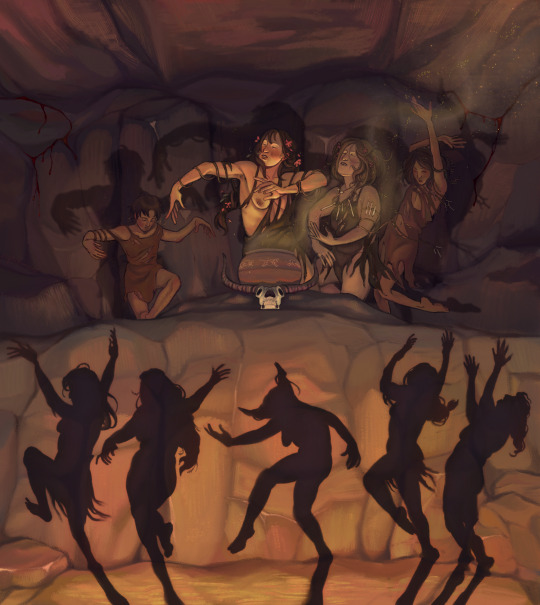
pathologic fest day 19
"In the Darkness"
where nobody dwells but the earth herself
2K notes
·
View notes
Note
i think if ur white u should step back about calling it racism. comparing the plight of POC to a magical group of (white) people with inhuman members isn't appropriate. consider changing ur wording to prejudice or bigotry? as a POC its uncomfortable to see ppl say something is racism towards anything non-human, considering POC are constantly compared to animals. plus the mysticism of the kin isnt good to compare to POC either (our cultures are constantly mysticized already)
I am very sorry anon, and definitely didn’t mean to compare POC to anything non-human!
I will be honest, I didn’t consider the kin as white, since they are established as an indigenous group and from what I gathered modeled after the Buryats, which are indigenous in parts of Russia. The human NPC models of the Kin also have darker skintones in contrast to the white townsfolk, though a lot of the major ones are white-passing. They get discussed like that in the fandom and by POC too and while this obviously isn’t a good argument in itself, it was the reason why I assumed that they are not white. I didn’t mean to imply that the reason was that part of the Kin are non-human and I totally agree that non-human characters should not be aligned with POC! I just assumed that the human part of the Kin and the group in itself was considered an indigenous group with asian features and a non-western culture suffering under colonization of white townsfolk and that it was therefore racism that is applied against them.
Though I totally agree that in the context of non human characters, this is not okay and I actually heavily dislike the animal-comparison of the kin in game because I do not consider them white. So yeah, that is discomforting. I have to say, since I did gather it as prejudice against an specifically not-white group and not against a magical/mystical one, I would still consider it racism, but I will definitely look into it and since I completely agree with your argument itself, I will definitely change it, if my assumption is wrong. I didn’t reflect on the implication of making a group of POC explicitly mystical and how to approach it.
Thank you for bringing this to my attention!
1 note
·
View note
Video
Bella's Gianmarco Lorenzi pointed toe high heels over the knee boots bla... #gianmarcolorenzi #overthekneeboots #thighboots #otkboots #pointedtoeboots Buryat model Bella presents Gianmarco Lorenzi over the knee boots. She walks in pointed toe boots by rail. Stiletto heels fall between gravel. The girl in thigh high boots sits on the rails. The model closely shows her OTK boots. Bella walks in black leather boots along the very edge of the concrete bridge. The girl in pointy toe boots is pleased with the weather in early April. Then the model walks in tall boots along the sand. A car is passing by and honking her and her perfect boots! Watch the full video here: https://www.instagram.com/andrewboots43 Buy luxury high heels boots here: https://www.ebay.com/usr/andrewboots43 Order your own personal video here: https://andrewboots43.com Buryat 모델 Bella는 무릎 부츠 위에 Gianmarco Lorenzi를 선물합니다. 그녀는 철도로 뾰족한 발가락 부츠를 걷습니다. 스틸레토 힐이 자갈 사이에 떨어집니다. 허벅지 높은 부츠에 소녀는 레일에 앉아있다. 모델은 그녀의 OTK 부츠를 자세히 보여줍니다. Bella는 콘크리트 다리의 가장 자리를 따라 검은 색 가죽 부츠를 착용합니다. 뾰족한 발가락 부츠의 소녀는 4 월 초 날씨에 만족합니다. 그런 다음 모델은 모래를 따라 큰 부츠로 걷습니다. 차가지나 가서 그녀와 그녀의 완벽한 부츠를 다!
1 note
·
View note
Photo

[TASK 160: KYRGYZSTAN]
In celebration of Kyrgyz Independence Day on August 31st, here’s a masterlist below compiled of over 170+ Kyrgyz faceclaims categorised by gender with their occupation and ethnicity denoted if there was a reliable source. If you want an extra challenge use random.org to pick a random number! Of course everything listed below are just suggestions and you can pick whichever faceclaim or whichever project you desire.
Any questions can be sent here and all tutorials have been linked below the cut for ease of access! REMEMBER to tag your resources with #TASKSWEEKLY and we will reblog them onto the main! This task can be tagged with whatever you want but if you want us to see it please be sure that our tag is the first five tags, @ mention us or send us a messaging linking us to your post!
THE TASK - scroll down for FC’s!
STEP 1: Decide on a FC you wish to create resources for! You can always do more than one but who are you starting with? There are links to masterlists you can use in order to find them and if you want help, just send us a message and we can pick one for you at random!
STEP 2: Pick what you want to create! You can obviously do more than one thing, but what do you want to start off with? Screencaps, RP icons, GIF packs, masterlists, PNG’s, fancasts, alternative FC’s - LITERALLY anything you desire!
STEP 3: Look back on tasks that we have created previously for tutorials on the thing you are creating unless you have whatever it is you are doing mastered - then of course feel free to just get on and do it. :)
STEP 4: Upload and tag with #TASKSWEEKLY! If you didn’t use your own screencaps/images make sure to credit where you got them from as we will not reblog packs which do not credit caps or original gifs from the original maker.
THINGS YOU CAN MAKE FOR THIS TASK - examples are linked!
Stumped for ideas? Maybe make a masterlist or graphic of your favourite faceclaims. A masterlist of names. Plot ideas or screencaps from a music video preformed by an artist. Masterlist of quotes and lyrics that can be used for starters, thread titles or tags. Guides on culture and customs.
Screencaps
RP icons [of all sizes]
Gif Pack [maybe gif icons if you wish]
PNG packs
Manips
Dash Icons
Character Aesthetics
PSD’s
XCF’s
Graphic Templates - can be chara header, promo, border or background PSD’s!
FC Masterlists - underused, with resources, without resources!
FC Help - could be related, family templates, alternatives.
Written Guides.
and whatever else you can think of / make!
MASTERLIST!
F:
Salamat Sadikova (1956) Kyrgyz - singer-songwriter and komuz player.
Dinara Akulova (1964) Kyrgyz - singer-songwriter.
Natalia Chumakova (1969) Kyrgyz - singer, bassist, and keyboardist.
Elnura Osmonalieva (1981) Kyrgyz - director.
Altynai Koichumanova (1983) Kyrgyz - actress and producer.
Nazira Aytbekova (1985) Kyrgyz - actress and tv presenter.
Jiidesh Idirisova (1985) Kyrgyz - singer-songwriter.
Nazira Nurzhanova (1987) Kyrgyz - actress, model, and Miss Kyrgyzstan 2011.
Irina Moiseenko (1987 or 1988) Kyrgyz - model.
Gulmairam Moldosanova (1987 or 1988) Kyrgyz - model.
Tsvetka / Svetlana Tigai (1988) Kyrgyz - instagrammer (tsvetka.art).
Aidai Muratalieva (1988 or 1989) Kyrgyz - model.
Altynai Ismankulova (1989) Kyrgyz - model and Miss Kyrgyzstan 2009.
Ajara Koichumanova (1990) Kyrgyz - instagrammer (ajara_koichumanova).
Aykol Alikjanovna (1990) Kyrgyz - model and Miss Kyrgyzstan 2014.
Samara Karimova (1991) Kyrgyz - singer-songwriter.
Aysulu Sopubekova (1991 or 1992) Kyrgyz - model.
Ajara Shabdanova (1992) Kyrgyz - instagrammer (ajara.shabdanova).
Ksenia Barannikova (1992 or 1993) Kyrgyz - model.
Asel Djamankulova (1992 or 1993) Kyrgyz - model.
Aruuke Turgunalieva (1994 or 1995) Kyrgyz - model.
Fatima Ismailova (1994 or 1995) Kyrgyz - model.
Aigul Aalieva (1994 or 1995) Kyrgyz - model.
Tattybubu Samidin Kyzy (1995) Kyrgyz - model and Miss Kyrgyzstan 2015.
Akbermet Ashymbekova (1995 or 1996) Kyrgyz - model.
Meerim Abylova (1995 or 1996) Kyrgyz - model.
Aichurok Beishenbekova (1995 or 1996) Kyrgyz - model.
Aijan Turgunbekova (1996 or 1997) Kyrgyz - model.
Aigerim Tariel (1996 or 1997) Kyrgyz - model.
Olga Koshimbetova (1997) Kyrgyz, Russian - reality tv star.
Adina Makhtybaeva (1997 or 1998) Kyrgyz - actress and model.
Manzura Sabzalieva (1997 or 1998) Kyrgyz - model.
Altynai Kurmanbekova (1997 or 1998) Kyrgyz - model.
Madin Khalmat (1997 or 1998) Kyrgyz - model.
Elmara Buranbaeva (1998) Kyrgyz - model and Miss Kyrgyzstan 2018.
Begimai Karybekova / Begimay Karybekova (1998) Kyrgyz - model and Miss Kyrgyzstan 2017.
Perizat Rasulbek Kyzy (1998) Kyrgyz - model and Miss Kyrgyzstan 2016.
Hanna Djennaz (1999 or 2000) Kyrgyz - model.
Victoria Khan (2000) Kyrgyz, Korean - model.
Aidana Toktogazieva (2000 or 2001) Kyrgyz - model.
Benazir Abduzhaparova (2000 or 2001) Kyrgyz - model.
Alena Kreiter (2001) Kyrgyz - model.
Aiperi Chyngyshbaeva (2001 or 2002) Kyrgyz - model.
Diana Mahamatsami (2001 or 2002) Kyrgyz - model.
Misha Kumari (2002 or 2003) Kyrgyz, Indian - model, actress, and dancer.
Zere / Zere Asylbek (?) Kyrgyz - singer-songwriter.
Perizat Dolotbakova (?) Kyrgyz - singer-songwriter and model.
Meerim Atantaeva (?) Kyrgyz, Korean, Japanese - actress and model.
Asel Kasmakunova (?) Kyrgyz - singer-songwriter.
Meerim Zhumabaeva (?) Kyrgyz - model.
Zalina Barataliyeva (?) Kyrgyz - singer-songwriter.
Barchyn Kazakbaeva (?) Kyrgyz - model.
Aizana Mederova (?) Kyrgyz - model.
Nicky von Buranova (?) Kyrgyz, Uzbek, Uyghur, Tatar, Chinese, Russian, Belarusian - model and photographer.
Assol Moldokmatova (?) Kyrgyz - actress and tv host.
Gulbara Tolomushova (?) Kyrgyz - filmmaker.
Meerim Askerbekova (?) Kyrgyz - model.
Aigerim Nurlanova (?) Kyrgyz - model.
Begimai Nazarova (?) Kyrgyz - model and Miss Earth Kyrgyzstan 2017.
Begim Almasbekova (?) Kyrgyz - model and Miss Earth Kyrgyzstan 2016.
Tattuububu Ergeshbaeva (?) Kyrgyz - model and Miss International Kyrgyzstan 2014.
Meerim Erkinbaeva (?) Kyrgyz - model and Miss International Kyrgyzstan 2013.
Diana Avganova (?) Kyrgyz - model and Miss Kyrgyzstan 2012.
Asel Samakova (?) Kyrgyz - model and Miss International Kyrgyzstan 2011.
Dilfuza Mirza (?) Kyrgyz - Instagrammer (Instagram: dilfuzamurza)
Adelia (?) Kyrgyz - Instagrammer (Instagram: adelia__345)
Gia Noortas (?) Kyrgyz - actress and director.
Nazik Kudayberdiyeva (?) Kyrgyz - singer-songwriter.
Julia Golovkova (?) Kyrgyz - model.
Meerim Abdykalykova (?) Kyrgyz - singer.
Zarina Osmonova (?) Kyrgyz - singer-songwriter.
Gul’nara Toygonbayeva (?) Kyrgyz - singer-songwriter.
F - Athletes:
Vera Korsakova (1941) Kyrgyz - hurdler.
Bermet Duvanaeva (1988) Kyrgyz - tennis player.
Zhuldyz Eshimova (1988) Kyrgyz - wrestler.
Gulshanoi Satarova (1992) Kyrgyz - middle-distance runner.
Zhanyl Okoeva (1993) Kyrgyz - weightlifter.
Aisuluu Tynybekova (1993) Kyrgyz - wrestler.
Anna Bulanova (1994) Kyrgyz - sprinter and long jumper.
Meerim Zhumanazarova (1999) Kyrgyz - wrestler.
M:
Janysh Kulmambetov (1955) Kyrgyz - actor and filmmaker.
Aktan Arym Kubat / Aktan Abdykalykov (1957) Kyrgyz - actor, director, and screenwriter.
Ernest Abdyjaparov (1961) Kyrgyz - actor and filmmaker.
Ruslan Akun (1984) Kyrgyz - filmmaker.
Azamat Sydykov (1986) Kyrgyz - pianist.
Omar Zhanyshov (1988) Kyrgyz - singer.
Almaz Raimzhanov (1989 or 1990) Kyrgyz - actor and model.
Kumar Abirov (1990 or 1991) Kyrgyz - model.
Amal Babadjanov (1992 or 1993) Kyrgyz - model.
Izat Ishonov (1994 or 1995) Kyrgyz - model.
Adan Berg (1994 or 1995) Kyrgyz - model.
Jan Voinov (1996) Kyrgyz - dancer.
Nazim Isaev (1997 or 1998) Kyrgyz - model.
Sadyraliev Bekzat Muratalievich (1997 or 1998) Kyrgyz - model.
Quvvatbek Zalilov (1997 or 1998) Kyrgyz - model.
Altamash Noor (1997 or 1998) Kyrgyz, Indian, Pakistani - model.
Islam Satyvaldiev (1999 or 2000) Kyrgyz - model.
Farukh Ismailov (1999 or 2000) Kyrgyz - model.
Kuralbek Chokoyev (?) Kyrgyz - singer-songwriter.
Zarlyk Kambaraliyev (?) Kyrgyz - singer-songwriter.
Bakytbekov Aybek (?) Kyrgyz - singer-songwriter.
Nursultan Raimbekov (?) Kyrgyz - singer-songwriter.
Islam Akmatov (?) Kyrgyz - singer-songwriter.
Bektur Sharshenaliyev (?) Kyrgyz - singer-songwriter.
Kamchybek Oskonbayev (?) Kyrgyz - singer-songwriter.
Rysbek Jumabayev (?) Kyrgyz - singer.
Primberdiyev Kayrat (?) Kyrgyz - singer-songwriter.
Adilet Azim-Uulu (?) Kyrgyz - singer-songwriter.
Maksat Omurbek (?) Kyrgyz - singer-songwriter.
Kayrat Alikov (?) Kyrgyz - singer-songwriter.
Suusar Zhayloobek kyzy (?) Kyrgyz - singer-songwriter.
Tilek uulu Suban (?) Kyrgyz - singer-songwriter.
Sagynych (?) Kyrgyz - singer-songwriter.
Abdinasir Issa (?) Kyrgyz, Unspecified Black - model.
M - Athletes:
Orzubek Nazarov (1966) Kyrgyz - boxer.
Talant Duyshebaev (1968) Kyrgyz - handball player.
Murat Jumakeyev (1973) Kyrgyz - footballer.
Nurdin Donbaev (1974) Kyrgyz - wrestler.
Ruslan Sydykov (1975) Kyrgyz - footballer.
Ulanbek Moldodosov (1976) Kyrgyz - weightlifter.
Nurbek Kasenov (1976) Kyrgyz - boxer.
Kid Diamond / Almazbek Raiymkulov (1977) Kyrgyz - boxer.
Ivan Borisov (1979) Kyrgyz - skier.
Bakhyt Akhmetov (1979) Kyrgyz - wrestler.
Timur Shailezov (1980) Kyrgyz - boxer.
Uran Kalilov (1980) Kyrgyz - wrestler.
Talant Samsaliev (1980) Kyrgyz - footballer.
Daniar Kobonov (1982) Kyrgyz - wrestler.
Asylbek Talasbayev (1982) Kyrgyz - boxer.
Aibek Bokoyev (1982) Kyrgyz - wrestler.
Dmitry Trelevski (1983) Kyrgyz - skier.
Kanatbek Begaliev (1984) Kyrgyz - wrestler.
Bekzat Osmonaliev (1985) Kyrgyz - weightlifter.
Aybek Abdymomunov (1985) Kyrgyz - boxer.
Janarbek Kenjeev (1985) Kyrgyz - wrestler.
Bazar Bazarguruev (1985) Kyrgyz [Buryat] - wrestler.
Rustem Usanov (1985) Kyrgyz - footballer.
Cholponbek Esenkul Uulu (1986) Kyrgyz - footballer.
Evgeniy Malinin (1986) Kyrgyz - footballer.
Karim Izrailov (1987) Kyrgyz - footballer.
Almazbek Mirzaliev (1987) Kyrgyz - footballer.
Emil Kenzhesariyev (1987) Kyrgyz - footballer.
Azamat Baimatov (1988) Kyrgyz - footballer.
Mirlan Eshenov (1988) Kyrgyz - footballer.
Kursanbek Sheratov (1989) Kyrgyz - footballer.
Chingiz Mamedov (1989) Kyrgyz - judoka.
Arsen Eraliev (1990) Kyrgyz - wrestler.
Mirlan Murzaev (1990) Kyrgyz - footballer.
Murat Ramonov (1990) Kyrgyz - wrestler.
Sherzod Shakirov (1990) Kyrgyz - footballer.
Erkin Adylbek Uulu (1991) Kyrgyz - boxer.
Islam Shamshiev (1991) Kyrgyz - footballer.
Kayumzhan Sharipov (1991) Kyrgyz - footballer.
Aziz Sydykov (1992) Kyrgyz - footballer.
Adilet Kyshtakbekov (1993) Kyrgyz - runner.
Kairat Zhyrgalbek Uulu (1993) Kyrgyz - footballer.
Izzat Artykov (1993) Kyrgyz - wrestler.
Tenirberdi Suiunbaev (1994) Kyrgyz - middle-distance runner.
Akhlidin Israilov (1994) Kyrgyz - footballer.
Bektur Talgat Uulu (1994) Kyrgyz - footballer.
Akram Umarov (1994) Kyrgyz - footballer.
Farhat Musabekov (1994) Kyrgyz - footballer.
Bekzhan Sagynbaev (1994) Kyrgyz - footballer.
Tamirlan Kozubaev (1994) Kyrgyz - footballer.
Bakhtiyar Duyshobekov (1995) Kyrgyz - footballer.
Tariel Zharkymbaev (1996) Kyrgyz - cross-country skier.
Kutman Kadyrbekov (1997) Kyrgyz - footballer.
Aizar Akmatov (1998) Kyrgyz - footballer.
Akzhol Makhmudov (1999) Kyrgyz - wrestler.
Zholaman Sharshenbekov (1999) Kyrgyz - wrestler.
Erzhan Askarov (?) Kyrgyz - middle-distance runner.
Problematic:
JIKA / Jika Nurman (1992) Kyrgyz - model and dancer. - Appropriation of cornrows.
12 notes
·
View notes
Text
In his speech to the United Nations General Assembly on Sept. 21, Mongolian President Ukhnaagiin Khurelsukh devoted much of the first half of his remarks to Mongolia’s dedication to internationalism and efforts to avoid war and conflict. Khurelsukh was laying out an independent Mongolian foreign policy that criticized Russian aggression against Ukraine—without directly mentioning the invasion. Since Mongolia’s democratic revolution and withdrawal of Soviet support, Mongolia has looked to the international community in its attempt to chart a foreign policy that maintains its independence from overbearing neighbors China and Russia. Ulaanbaatar’s approach may be a model for others in a new world of rival blocs.
The unprovoked and faltering Russian invasion of Ukraine has raised many questions about the direction of international relations. One of these questions centers on what kind of bloc may form around China and now-subservient partner Russia, especially in Asia. A realist perspective has led to expectations that few independent continental Asian countries will be able to resist Chinese pressure to fall in line with its leadership. To many experts, the recent Shanghai Cooperation Organization summit was a confirmation of this Chinese leadership being projected into Central Asia as one battleground for bloc formation. But Central Asian nations are pushing back against the idea of inevitably being drawn into Beijing’s orbit. Another possibility is so-called active nonalignment being discussed in some South American and—in other versions—Southeast Asian circles.
Mongolia sits in a particularly precarious situation with China and Russia as its only neighbors, one that is sometimes described as sharing a bed with a bear and a dragon. The country is dependent on Russian energy as the sole supplier of fuel to Mongolia and the sole supplier of electricity to western Mongolia. China, meanwhile, absolutely dominates Mongolian trade by importing consumer goods and exporting Mongolian resources—primarily copper but also gold, coal, and other minerals.
As much as Mongolia has sought to chart its own course for the last three decades, the walls have been closing in as China and Russia’s partnership deepens. Since the mid-1990s, Mongolia has pursued a course that seeks to balance constructive relations with its two neighbors by intensifying relations with “third neighbors”—i.e., friends that share democratic commitments but also a market economy. These third neighbors include the United States, of course, a relationship that was formalized in a strategic partnership in 2019 and became a partner in the annual Khaan Quest military exercises that have been held in Mongolia since 2003. Will Mongolia continue to be able to pursue this independent foreign policy despite geopolitical shifts brought about by China’s ascendence and Russia’s aggression?
Initial signs this spring seemed to suggest that the days of Mongolian relations with its third neighbors were numbered. The government has yet to issue any kind of direct criticism of Russian aggression and abstained from various U.N. resolutions giving voice to such criticism. There are many prominent critics of Russian aggression, such as former Mongolian President Tsakhiagiin Elbegdorj or former Prime Minister Mendsaikhany Enkhsaikhan, who often refer to the preponderance of minorities, such as Buryats, in Russia’s military. But a large portion of Mongolian elites not only speak Russian but are distinctly Russophile. Before the collapse of the Soviet Union, not only was Russian the main second language in Mongolia but elites often studied there. Today, many Mongolians are much more likely to seek higher education in third-neighbor countries. Interestingly, somewhat older pro-Russian voices have largely gathered on Facebook while vociferous critics have been more active on Twitter. But although the government has not embraced a position that is critical of Russian aggression, many conversations I had in Ulaanbaatar this summer suggested that abstaining on U.N. resolutions was actually a daring move as it indicated precisely that Mongolia was not easily falling into line with China and Russia.
Enter internationalism as Mongolia’s opportunity to maintain its independence and independent outlook. As emphasized by Khurelsukh in his speech, Mongolia has a long-standing history of internationalist commitments since its democratic revolution in 1990. “Mongolia has consistently pursued a peace-loving, open, multi-pillar, and independent foreign policy,” Khurelsukh asserted. The early highlight of these commitments was the declaration of a nuclear weapons-free status at the U.N. General Assembly in 1992, only one year after the dissolution of the Warsaw Pact.
In the past two decades, this commitment has expanded to active participation in peacekeeping operations. Specific initiatives, such as support to women peacekeepers, have further bolstered these commitments. In August, U.N. Secretary-General António Guterres visited Mongolia and made many references to Mongolia’s contributions, including Khurelsukh’s campaign to plant 1 billion trees as a contribution to the fight against climate change.
Khurelsukh’s extended plea for dialogue as a resolution to conflict—a veiled reference to Russian aggression and Central Asian turmoil in the past month—reaffirms Mongolia’s desire to maintain an independent foreign policy in the face of pressure from its overbearing neighbors, a desire that deserves international and specifically U.S. support. As Khurelsukh said at the U.N. General Assembly, “In today’s complex reality, we should always strive to learn from the mistakes of the past, uphold mutual trust, understanding, and respect, and make every effort to resolve any misunderstanding, conflict or war by peaceful means and dialogue.”
Some third neighbors have already taken steps that suggest a new values-driven engagement of Asian neighbors to China and Russia. This year, Germany announced that it would restart foreign aid to Mongolia. Australia opened itself to Mongolians via working holiday visas.
One area for increased engagement by third neighbors and the United States would be energy security. As Europe struggles to free itself from energy dependence on Russia, the United States sits in a relatively comfortable position, having a secure domestic supply of hydrocarbons. Setting aside the enormous risks this supply poses to the world facing a climate emergency, Mongolia is reliant on Russian energy and its own coal supply. Yet, it has abundant potential for the development of alternative energies. Most obvious in this context is the 300 days of annual sunshine that most of the country enjoys and the low population density that would make industrial-scale deployment of solar power generation possible.
Yet, unlocking this potential and the additional possibility of becoming a significant exporter of energy to China and thus creating some leverage in economic relations requires enormous capital investments initially to build a smart power grid. The other possibility that has been highlighted by the Mongolian government is the development of hydropower. Notwithstanding the challenges that come with such megaprojects around consultations with local communities, the loss of rangelands, and the financing and logistics of construction itself, hydropower offers perhaps the most direct counter to Mongolian dependence on Russian power supplies.
Although not mentioned directly in Khurelsukh’s speech, U.S. and international support for alternative energy projects in Mongolia would provide an avenue to renew third-neighbor relations. After all, the potential of a growing confrontation with a China-Russia alliance calls for efforts to realize this partnership and further bolster Mongolia’s commitment to democracy and human rights as well as its independence.
The United States is currently strongly engaged with the Mongolia Water Compact that is focused on drinking water for Ulaanbaatar, the capital. A focus on enabling the development of an alternative energy sector could focus on drawing lessons from large-scale mining projects to address challenges around community responses to shrinking pasturelands. Although solar projects do not lead to big holes in the ground, they might demand extensive fencing, not least to keep livestock—still the backbone of Mongolian life for many families—out.
All this needs financing. The risk here is that China has the vehicles and market motivation to step in easily, so any other sources of international financing will in and of itself provide some balance.
When it comes to security considerations, it is important to give the Mongolian government some leeway for its decision-making. What may have looked like a lack of opposition to Russian foreign policy for the past six months from afar may actually have been as far as the government has been able to go in staking out a position critical of Russia. The next flash point may already be looming in the thousands of Russian men who have migrated to Mongolia to avoid conscription in the past weeks. Although the Mongolian government is already issuing them resident permits, what if Moscow demands their return? After all, ethnic Mongolians fleeing China have been returned, as have North Koreans who have made their way to Mongolia.
Mongolia can provide a model for how to engage the many countries that ring China and Russia in a time when they struggle to resist pressure from Beijing and Moscow. Mongolia may not be able to openly condemn its domineering neighbors—but that doesn’t mean it’s happy about them.
1 note
·
View note